Serbia (at that time part of Yugoslavia) became a member of the World Energy Council in 1924. As one of the WEC’s founders, the Yugoslav World Energy Council Member Committee, including high federal government officials and leading experts in all energy sectors, was active all the time both on local and international scene. At present the Serbian World Energy Council member committee is continuing this practice. Its membership (individuals from governmental institutions, universities, scientific institutes, energy industries and consulting and other companies, as well as from professional associations in the energy field as the MC collective members) takes an active part in all energy related matters in the country.
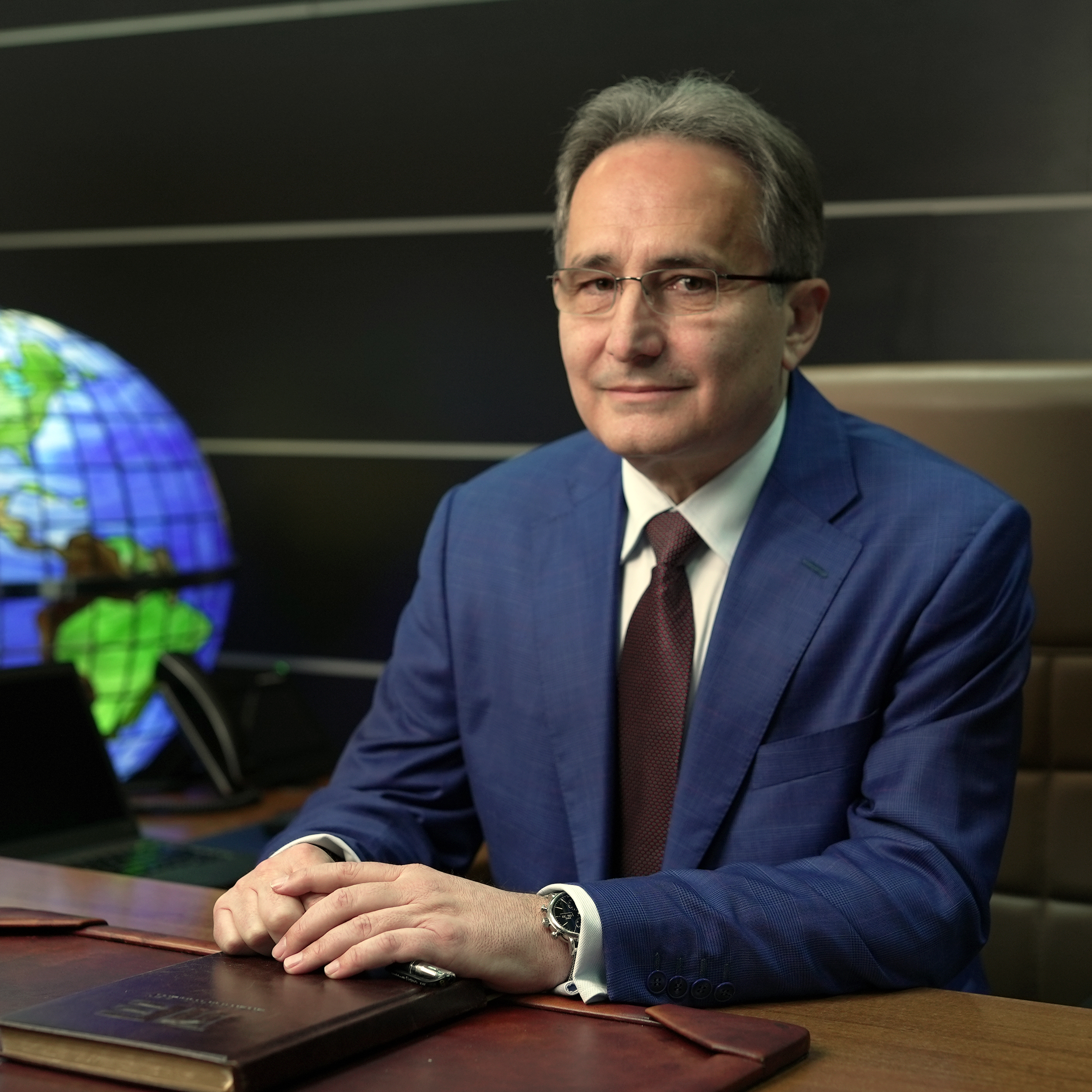
Mr. Simovic is an experienced energy professional with more than 30 years of international experience in energy, utilities, and management. He is a graduate of the Faculty of Mechanical Engineering, University of Belgrade with an advanced level of additionally acquired skills in management, business, and finance.
He started his professional career in the reputable Serbian corporation Energoprojekt Group, one of the engineering giants of former Yugoslavia. The company employed several thousands of engineers active on projects executed in Europe, Africa, Asia and South America. Over time he climbed a corporate latter, advancing from an engineering position to the Assistant Director for business operations and marketing in Energoprojekt ENTEL, an independent company of Energoprojekt Group providing services in energy and water-related consultancy, design and project management. In 2002 he was appointed the CEO of Energoprojekt ENTEL, the role he has been holding up to date.
Mr. Simovic is regularly invited to provide views on various energy sector-related subjects by key energy stakeholders in Serbia, including the Serbian Academy of Science and Arts, faculties, business and engineering organizations and associations. Likewise, the company he leads, Energoprojekt ENTEL is firmly established on the Serbian market as one of the most reputable capital project consultancy providers in the country. The company regularly cooperates with the most reputable international consultants, contractors and international organizations.
Throughout his rich career. Mr. Simovic received several awards for best manager, entrepreneur or leader while the company he leads was selected among the best in Serbia. He is on the Board of Directors of UAE-Serbia Business Club. He was also Vice President of the Red Star Sports Association, the largest sports association in Serbia.

Prof. Miloš Banjac, PhD, is a full-time Professor at the Faculty of Mechanical Engineering, University of Belgrade. In 2010, he was appointed Assistant Minister in the Ministry of Mining and Energy of the Republic of Serbia, in charge of the energy efficiency and renewable energy sector. During that period, he managed or advised the drafting of the most important legal and strategic documents in the energy sector in Serbia: Energy Law, the Law on Efficient Use of Energy, the Energy Development Strategy of the Republic of Serbia, National Action Plans for Energy Efficiency and Renewable Energy and many others. Through dozens of by-laws adopted at the time, Dr Banjac, together with his associates, created a legal basis for establishing the Energy Efficiency Budget Fund, as well as the Energy Management System in Serbia, also creating a legal basis for promoting the construction of renewable power generation facilities, resulting in more than 500 MW of renewable power added to the national energy system.
He represented Serbia in the Renewable Energy Task Force in the Energy Community of Southeast Europe in 2011-2012 and negotiated Serbia’s national RES obligations until 2020. He was a Representative of the Republic of Serbia on issues related to renewable energy in the Energy Community of South East Europe, Chair of the Renewable Energy Coordination Group (2014-2020), Representative of the Republic of Serbia in the Energy and Climate Committee in the Energy Community of Southeast Europe (2014-2020) and Vice-Chair of the Bureau of the UNECE Group of Experts on Renewable Energy (2014-2020).
He has been a member of the Energy Committee of the Serbian Academy of Sciences and Arts since 2018 and the president of the National Scientific Committee for Energy and Mining at the Ministry of Education, Science and Technological Development since 2021. He is the author of five textbooks, five handbooks and three monographs, as well as more than 180 scientific papers. He is a regular speaker at international and local conferences where he addresses the sustainable development of Serbia, the optimum structure of final energy consumption, energy efficiency improvements and the use of locally available renewable energy sources.
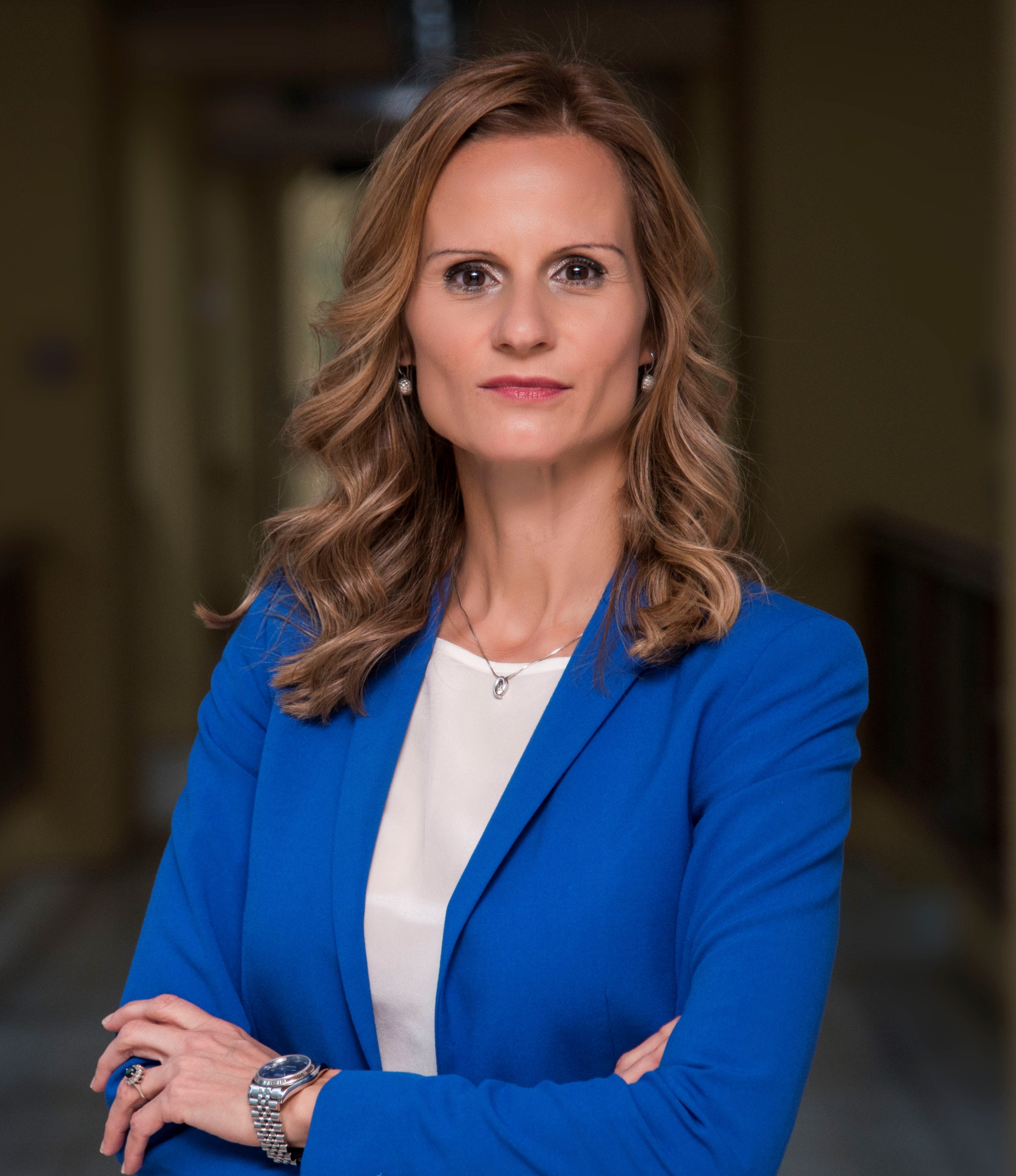
Dr Petrovic is a senior energy specialist with expertise in environmental engineering and pollution prevention. She holds a Graduate Mechanical Engineering Degree in thermal engineering received from the Faculty of Mechanical Engineering, University of Belgrade, as well as a Master’s Engineering Degree in the field of boiling heat transfer, from McMaster University in Canada. In 2016 she graduated with a PhD in the field of biofuels at the Faculty of Mechanical Engineering in Belgrade.
Since 2013, Dr Petrovic has been the Head of the Department for Environmental, Economic and Power System Studies at Energoprojekt ENTEL, one of the leading consultancy companies in Serbia in the field of power generation and transmission. During her career, she was involved in the environmental estimation and analysis of numerous energy projects in Serbia, addressing environmental impact as well as identification of necessary pollution prevention and mitigation measures for both conventional and renewable projects. In addition, she was deeply involved in the implementation of one of the largest energy efficiency projects in Serbia that enabled 90 public buildings from key public sectors (education, healthcare and social care) to be retrofitted to enable much-needed energy savings. She also participated in energy development strategies for several municipalities in Serbia. During her career, Dr Petrovic has developed a deep understanding of the energy system operation and development, including the implementation of initiatives and measures aimed at facilitating the ongoing process of energy sector decarbonization.
Dr Petrovic is a Secretary of the Society of Thermal Engineers of Serbia, member of the Association of Energy Sector Specialists in Serbia, Head of Energy Management Body of Energoprojekt ENTEL, Representative of Energoprojekt ENTEL in Energy Efficiency and Green Building Coordination Committee of Energoprojekt Group, Chartered Engineer and a member of WISE SEE (Women in Sustainable Energy South-East Europe).
She is also a Business Development Manager at Energoprojekt ENTEL
Energy in Serbia
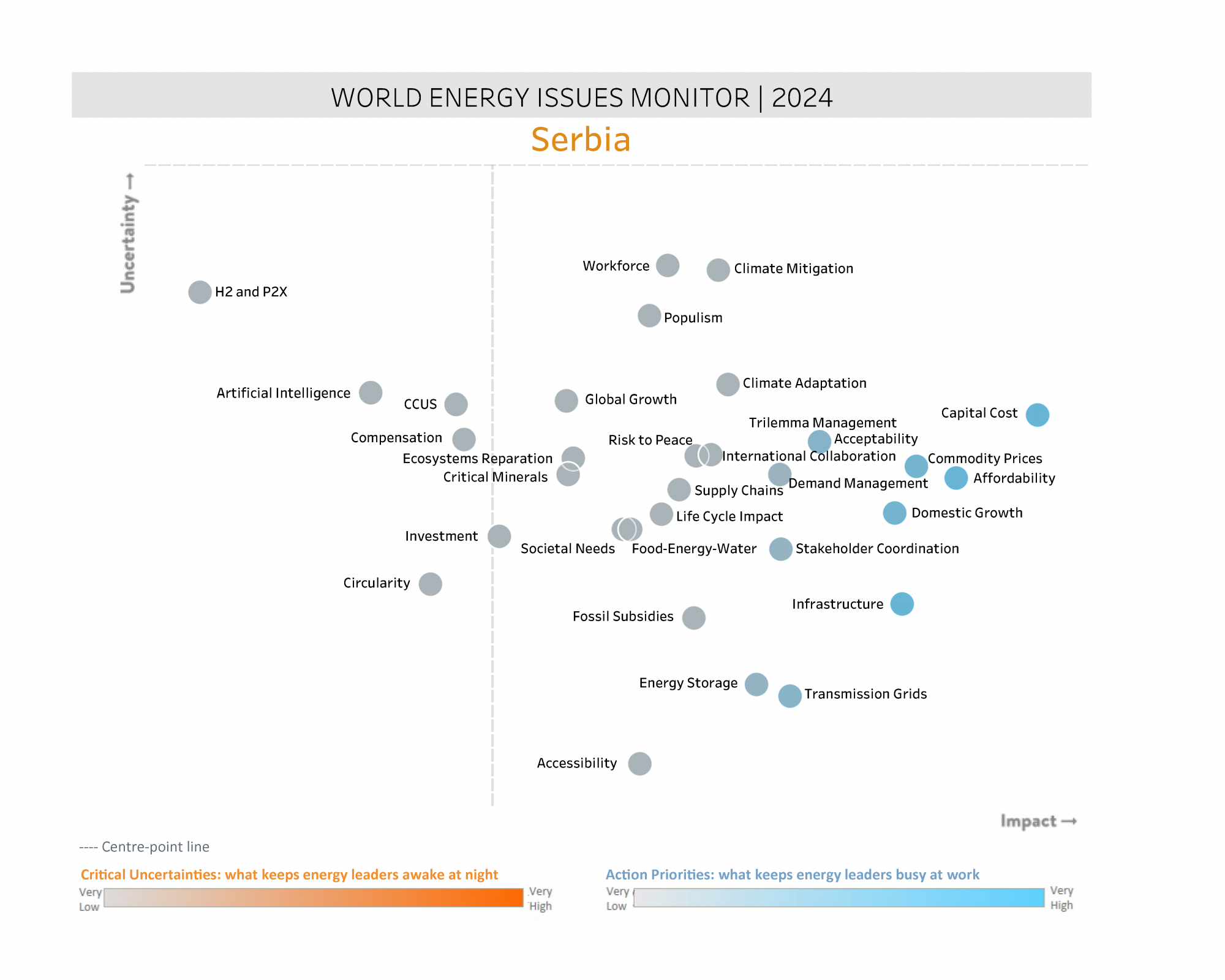
Major country changes
Serbia, as a signatory of the Treaty establishing Energy Community of Southeast European countries since 2005, and a candidate for European Union membership since 2012, is striving to decarbonize its energy sector in accordance with EU energy policy. A significant challenge in this transition is the fact that coal is Serbia's main source of energy, accounting for up to 70% of the electricity produced. Additionally, Serbia, with a gross national income significantly lower than the EU average, cannot utilize EU investment funds, relying instead on very modest and purpose-limited pre-accession assistance funds. As a result, Serbia is forced to finance the large and expensive costs of energy sector decarbonization through loans, which impose much burden to national financial stability. Simultaneously, the increased costs of electricity production from renewable energy sources (RES) are compensated by electricity price increase, causing dissatisfaction among broader population. Moreover, due to the war in Ukraine and increased uncertainty in supply from Russian Federation, particularly with respect to natural gas, previous national development plans based on this energy source are now being questioned. This has further raised concerns about the ability to ensure high quality and financially viable energy supply with a rapid transition from coal to natural gas and renewable energy sources. On the other hand, almost all new investments in the energy sector for utilizing RES are based on foreign capital, which undermines the previously deeply ingrained concept of energy as a public service conducted by public companies. Hence, there is a reluctance, not without reason, to accept that the construction of private energy facilities will contribute to the development of Serbia's energy sector and increase its security in terms of energy supply.
The Low-Carbon Development Strategy of the Republic of Serbia until 2050 has been adopted by the Government (Official Gazette of the Republic of Serbia No 46, 7 June 2023, pp. 47-89). Although there is a consensus on the necessity of energy sector decarbonization, opinions on the dynamics, implementation methods, and financing of this initiative are divided. These statuses, conditions, and phenomena in Serbia have been present during the entire energy transition process, for more than a decade now, leading to the conclusion that the World Energy Issues Monitor survey results in this regard have not changed.
Depending on the sector and the stakeholder providing the viewpoints, opinions vary in a wide range: from the idea of continuing coal use until its complete depletion by around 2050 or slightly earlier until the end of the lifespan of existing thermal power plants, to those advocating for a faster transition to renewable energy sources. At the same time, there is no doubt that rapid transition would inevitably lead to the closure of coal mines, which employ a large number of people, potentially resulting in negative social and societal consequences.
Therefore, the responses of the Serbian Member Committee members to the 2024 World Energy Issues Survey indicate that the Action Priorities and Critical Uncertainties for Serbia include four recurring themes: Capital Cost, Affordability, Commodity Prices, and Domestic Growth.
Accelerating country trends over the last 5 years
Although there has been no significant construction of new RES power plants in past couple of years, except to some extent for small solar power plant, to achieve the target of 50% share of renewable energy in gross final energy consumption by 2040, Serbia has enacted a special Law on the Use of Renewable Energy Sources (Official Gazette of the Republic of Serbia No. 40/2021), which was soon after amended (Official Gazette No. 35/2023) to attract new investments in renewable energy sources and introduce balancing responsibility for electricity producers from variable renewable sources. The establishment of an auction system for allocating incentive funds for the construction of RES power plants was completed with the adoption of appropriate by-laws in 2023. Through this system, the first auctions awarded incentives for 425.2 MW of new wind and solar power capacities. With the new legal solutions, the operation of the prosumer was also functionally regulated, which led to the faster construction of a significant number of small solar power plants. At the end of April 2024, the installed capacity of these solar power plants reached 52 MW.
To accelerate the growth of RES in electricity generation, the Government has already passed the Regulation on the selection of a strategic partner(s) for the implementation of a project for the construction of self-balanced solar power plants with a total installed capacity of 1,000 MWAC (1,200 MWDC) and with battery storages of 200 MW installed capacity and the possibility of storing 400 MWh of electricity.
The expected rapid increase in variable RES power plants and their optimal integration into the existing system will require further development of regionally integrated energy markets with increased interconnection capacities with neighbouring countries. Moreover, the development of these markets will enable efficient cross-border electricity trade and address issues related to energy security. Therefore, these projects will remain a priority for Serbia. Significant actions have already been taken in this respect.
Furthermore, in 2021, the Law on Energy Efficiency and Rational Use of Energy (Official Gazette No. 40/2021) was adopted to improve energy efficiency through a wide range of support for such projects. Based on this law, subsidies for energy efficiency projects for households have been significantly increased. Increased energy prices due to carbon taxes, regulated by the recently enacted Climate Change Management Law (Official Gazette No. 26/2021) and the already developed Low-Carbon Development Strategy, are also expected to contribute to improved energy efficiency.
By the end of the year, the Ministry of Mining and Energy of Serbia is expected to prepare, and the Government to adopt, the Integrated National Energy and Climate Plan of the Republic of Serbia for the period 2030 with the projections up to 2050. Additionally, the Ministry of Mining and Energy of Serbia is expected to prepare a new Energy Sector Development Strategy of Republic of Serbia up to 2040 with the projections up to 2050, to be adopted by the National Assembly by the end of the year.
In 2024, the topic of building nuclear power plants in Serbia was reopened, and appropriate scenarios were considered during the preparation of the Energy Sector Development Strategy of Republic of Serbia. Given that a transition to renewable energy sources alone will likely not be sufficient for long-term electricity production, and with the uncertain role of natural gas as a transitional fuel, the nuclear option has emerged as a candidate for future energy mix participation. However, it should be noted that Serbia still has a moratorium on nuclear power plants in effect, introduced by law (Official Gazette No. 85/2005). Any potential inclusion of nuclear power plants would be after 2040.
Acknowledgements
Serbia Member Committee
Downloads
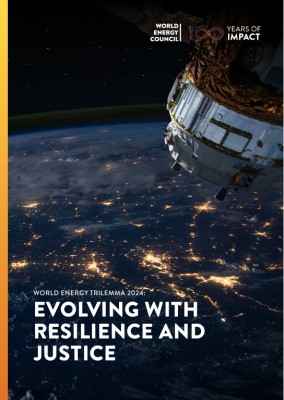
Serbia World Energy Trilemma Country Profile 2024
Download PDF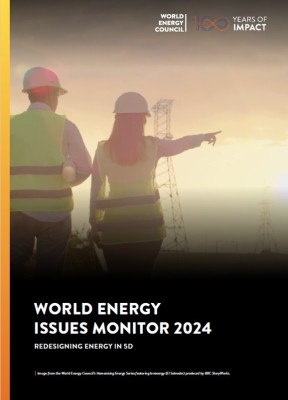
Serbia Energy Issues Monitor 2024
Download PDF
World Energy Issues Monitor 2024
Download PDF







